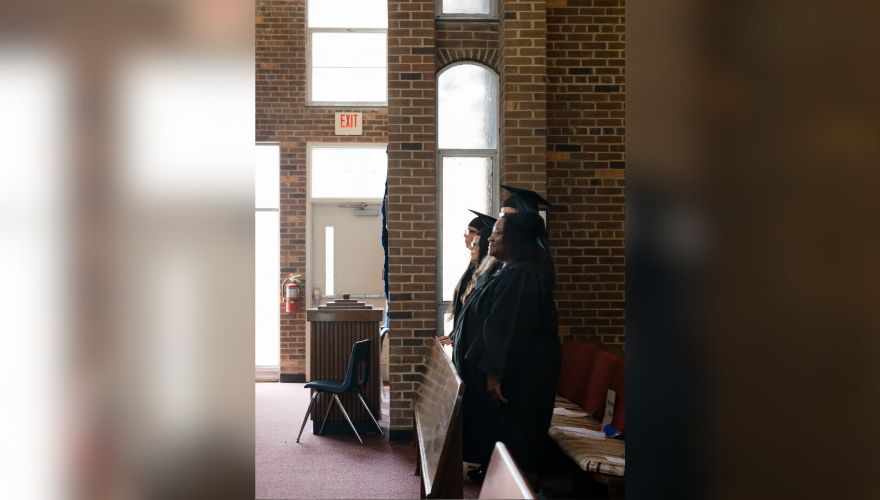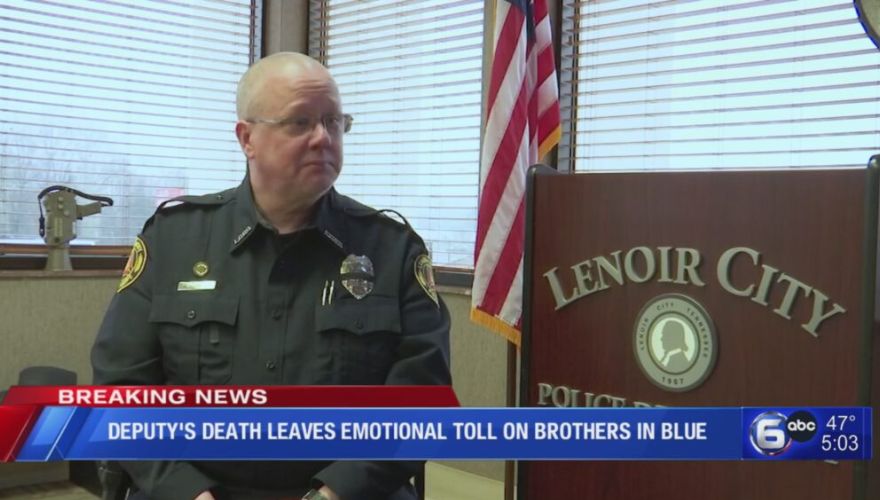LEBANON, Tenn. (BP) – Ten years ago, a dozen ministers and local church members in Lebanon decided to investigate what they had been told – that a small homeless community was growing in their county. On a winter day, they went into the “woods” of Lebanon behind one of the busiest thoroughfares and found evidences of a homeless camp, including tents, groceries and diapers. Troubled and burdened by this discovery, the small group decided on one simple goal: No one would freeze to death in Wilson County.
A homeless ministry is born
This goal led to the formation of Compassionate Hands (CH), a ministry to the homeless population with a vision “that the Wilson County community of faith be Christ’s hands and feet to our neighbors in need.”
For more than 10 years, Wilson County has been buzzing with both economic and population growth. The population sits at just over 150,000 after growing by 35,000 in the last decade. And while such growth provides wonderful opportunities and experiences for the citizens, it has had unintended consequences.
As property values rise and rent payments go up, many families and individuals are having trouble finding or keeping affordable housing. In addition, as word spreads about the job creation happening in Middle Tennessee, people from all over the country have arrived on a search for opportunity, but without much of a plan. These factors, along with the inescapable difficulties of life, have left a portion of the Tennessee county’s population without a home.
The main thrust of Compassionate Hands is to provide temporary shelter for men and women in Wilson County every night in the winter months. A large network of volunteers from churches of all sizes keeps the system running each night. Each year the system has looked a little different, and COVID presented immense challenges, yet CH persevered.
Dinner is provided for those who arrive, and after a short vetting process, they are taken to different host sites across the county. A rotating group of churches offer their facilities to house the men and women. The homeless are provided a safe and warm place to sleep as well as a warm breakfast. Laundry service and the ability to take a shower are also available. In the morning, a bus takes the individuals to various places across the county and leaves them with a sack lunch.
The coordination among so many churches and volunteers requires significant oversight. John Grant has been serving as the executive director of Compassionate Hands since 2018. Grant was a part of that original group who visited the homeless camp in 2013. He was the first full-time staff member for Compassionate Hands and has grown the team to eight members at present. In addition to its winter housing, CH now has a Center for Hope and Renewal that stays open all year to feed people, lead faith-building classes and provide a place for showers and laundry.
Previously serving at a local church, Grant was sad to leave church ministry, but also eager to begin with CH, citing his desire to serve the community, his network of friends at churches and his personal giftings.
“I think it was a call from God. This was a ‘John Grant’ shaped role,” he said.
Misconceptions about the homeless
All of those involved in the ministry are quick to point out misconceptions about the homeless. They regularly and lovingly refer to them as their “homeless friends.” Many of those in need who have come to Compassionate Hands have full-time jobs and cars. Many are locals who grew up in the community and have fallen on hard times.
In Grant’s experience, he estimates that “one third have an addiction. One third have mental illness and a third have had bad luck.”
“I was scared and concerned about inviting homeless people into our church building,” Grant said remembering his church’s first evenings with Compassionate Hands. “What I’ve learned is that the homeless people were also scared of us and skeptical of churches. They’re spending the night with strangers too. Homeless people are really not that different from you and me.”
“The Good Samaritan is one of our key stories,” Grant said, referencing the story found in Luke 10. “We think Jesus is bringing us people who are battered and bruised by life.”
Dawn Bradford has served with the ministry for many years and currently sits on its board of directors. Bradford said Compassionate Hands has “absolutely changed my life.”
“Yes, it’s inconvenient and sometimes a little uncomfortable, but it’s not about me, it’s about living out the biblical principle of thinking of others before your own needs,” Bradford said.
John Ashman is a volunteer with Compassionate Hands, along with his wife Bonnie. Their experience serving has made a profound impact on their lives.
“Often when we see homeless people on the street, we may see them as lazy, dirty and not worthy of respect. But when we sit by them during the evening or morning and talk with them about their lives, we see that they are usually people who have had some bad breaks,” Ashman said.
One of the most emotional moments for Ashman came one Christmas.
“Due to the generosity of our church members, we were able to put together backpacks with a number of food items, personal care products and some warm hats and gloves,” Ashman said. “Church members wrapped the items, so that on Christmas morning, they were able to open the presents, just as if they were living with their families. One man said, ‘It’s been a long time since anybody gave me a Christmas present.’”
Every year, the ministry has experienced growth. More than 40 churches from 16 faith traditions have partnered through Compassionate Hands, providing more than 12,000 beds and 13,000 meals to more than 400 men and women. And more than 20 individuals or families have been able to transition into full-time housing with assistance from CH.
(EDITOR’S NOTE – Jill Waggoner serves as content editor with the Ethics & Religious Liberty Commission.)


